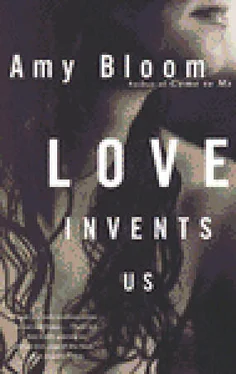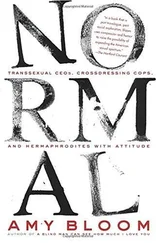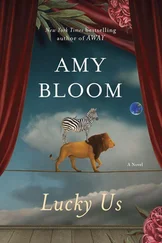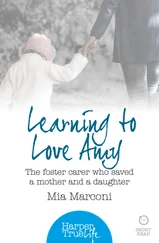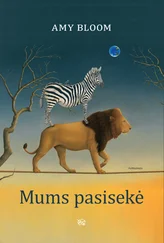She had watched Rachel take college the way she’d taken the road cross-country, carefully aggressive, hardly checking the map, since all the signs seemed so clear to her and fairly helpful. Elizabeth’s college life had been like her driving, too: she did it because she believed she had to (only one application, scribbled in midwinter, while standing in the post office), she never once intuited the right direction, and she understood that her safe arrival, at the end of these four years, owed more to other people’s skill and sensible swerving than to her own efforts.
“I am here for you, just like you were for me. I can help,” Elizabeth said, and cried into the sleeve of her sweater, relieved that she did not, in fact, know what to do, that that had not changed between them.
“Don’t cry,” he said, as kindly as he could. He would have been dimly pleased to hear she was graduating, dimly concerned about the blackouts, but she was alive and Ben was not and her breasts were nothing to him now, unless they could be traded, every moment of them, for him. He hugged her to be rid of her, looking forward to walking back alone, to weeping inside for Ben, to preparing for another evening of emotional heavy lifting and grey, pointless goodness, for Danny’s driving lesson, for Marc’s marathon TV-watching, for the balanced meal he cooked (not that Greta ate), for creating a father for his remaining, less loved boys, now desperately seeking their own lives, if only he will let them go.
And Elizabeth pressed in close, smelling his cigarette smoke and his Scotch and his Barbasol shaving cream, smells so woven into her sense of life that the sight of those striped cans on a supermarket shelf will make her eyes swell with tears for years to come, even after she forgets this conversation.
“Anything you want, Max,” she said, to reach into him without his really hearing, so he’d let her in without knowing he’d done so.
“I’m fine,” he said. “Go home, milacku.”
Margaret laid out daughter-of-the-bride clothes, layering them from the peach silk skirt to the white lace blouse, an ivory nylon slip and pale peach pantyhose on top of the pile. Peach peau de soie shoes faced the bed. Idiot-proof dressing. Elizabeth drank champagne while she showered, drank stingers while she dried her hair, put on socially appropriate makeup, although not the peach-toned stuff her mother had piled suggestively in front of the bathroom mirror. She simulated eye contact by looking at people’s foreheads and she fought back nausea when her mother promised to spend her life with Aaron Price, the psychiatrist she’d had in mind for Elizabeth in the bad old days. Elizabeth spent the rest of the afternoon and some part of the night in the ferocious blank haze that gives alcohol its good name.
Still drunk at dawn, she left her mother the nicest note she could and drove back to college. Instead of showing up for the graduation ceremony, she put on the peach skirt and the white lace blouse and got a job in a safe place.
Elizabeth had been sitting on her knees in the cookbook section, reading recipes for things like syllabub and poor mans tarts. She had been the assistant manager at Spivey’s Bookstore for the last three years, mostly because she would not become the manager. She didn’t become the manager, she didn’t become a teacher or a lawyer. No one ever suggested interior decorating or medicine or government, and Elizabeth did wonder, after each encouraging remark, what it was that made people think she should teach or litigate. It was probably not her interpersonal skills or her fine analytic mind. It was probably some sort of prematurely shriveled self-righteous obstinacy that people associated with their third-grade teacher or with a particularly vicious district attorney.
Elizabeth knew that the bad things that had happened to her were no worse than other people’s bad things; they were pretty small potatoes, in fact, compared to terminal cancer, death by famine, incest, quadriplegic paralysis. Nevertheless, whatever effort life required, whatever responsibility for joy was necessary to make it appear, Elizabeth didn’t have it. She was not drippingly miserable, she was not an affront to society. She paid her bills. She didn’t smell or piss on other people’s lawns. She suffered from the opposite of “phantom limb” syndrome; something essential appeared to be present, but it was not.
She thought about Max, but she didn’t write. She thought about Huddie when sweat trickled down her neck, when she heard the slap of sneakers on blacktop, when she woke up and when she couldn’t sleep. She stopped speaking to her mother, but not so her mother noticed. She didn’t look for ways to improve herself. She didn’t arrange to have her mail forwarded when she moved. She had been in her latest apartment for six months and hadn’t cleaned it. She couldn’t, really; she didn’t own a broom or a mop or even a bottle of Windex anymore, and she knew what Margaret would say about that. It’s a bad sign.
Every Friday, Elizabeth put out two cartons of juice and a bag of half-price bagels for the two crazy men who came through Spivey’s back alley every afternoon, and Peter, her boss, who loved her, watched and thought, Feed me. They will always be hungry.
Cupid and Psyche were Elizabeth’s favorite people. Socially mismatched, badly dressed, unprepared for the climate and the place in the way that marks the truly poor and the truly crazy, the two men spent most of their days by the concrete city fountain, a grey grim wedding cake of previous municipal good times, now barely trickling even in July and August, not even damp in spring and fall. The younger man, blond and slim, looked normal at a distance. Elizabeth had once come closer, pretending to catch a bus, and saw that he had a twenty-foot normal zone. Closer than that, you saw the heels run down to nothing on laceless wingtips, the pink plastic belt on the designer jeans, and the missing splotch of material on the right shoulder of his light blue button-down shirt. You saw his face, the features misaligned because no linked thoughts or feelings molded them. The older man was an obvious social problem, barely welcome at Dunkin’ Donuts and only briefly, and only when the afternoon-shift manager felt good. He bought a dozen doughnuts at a time, never squeezing or sniffing for freshness, just struggling with the coins and crumpled bills stuffed in the back pocket of his organically spattered black pants, as wide and swaying as a Victorian skirt, barely hanging on beneath the huge doughy belly and no visible underwear. His skin was so white and his hair so black and wiry that everyone could study each individual curl around his navel. No one looked too long; eye contact could lead to conversation, and although he smiled gamely, hoping to make friends, he had too few teeth and too many things snapping and shifting in his head to have the kind of conversation people wanted to have as they shuffled through the doughnut shop, getting on with their day. But he loved the young man.
They sat on the lowest tier of the fountain, and when the sun began to drop, the fat man made a pillow of some clothes from his bag and the young man stretched out. In the damp heat, he fanned the young man for hours at a time, using a folded newspaper. Occasionally he changed hands, and sometimes he’d break rhythm to swat a fly or chase some early-evening mosquitoes. He fanned him graciously and steadily, with no unsettling changes of pace or sighs of fatigue, fanned him until it was dark, until Elizabeth saw fireflies and the black outline of the fat man’s back. Then he woke his friend, very slowly and gently, a delicate, indulgent touch, and they went back through the alley.
Peter stepped over her knees ostentatiously. “Phone.”
Читать дальше
